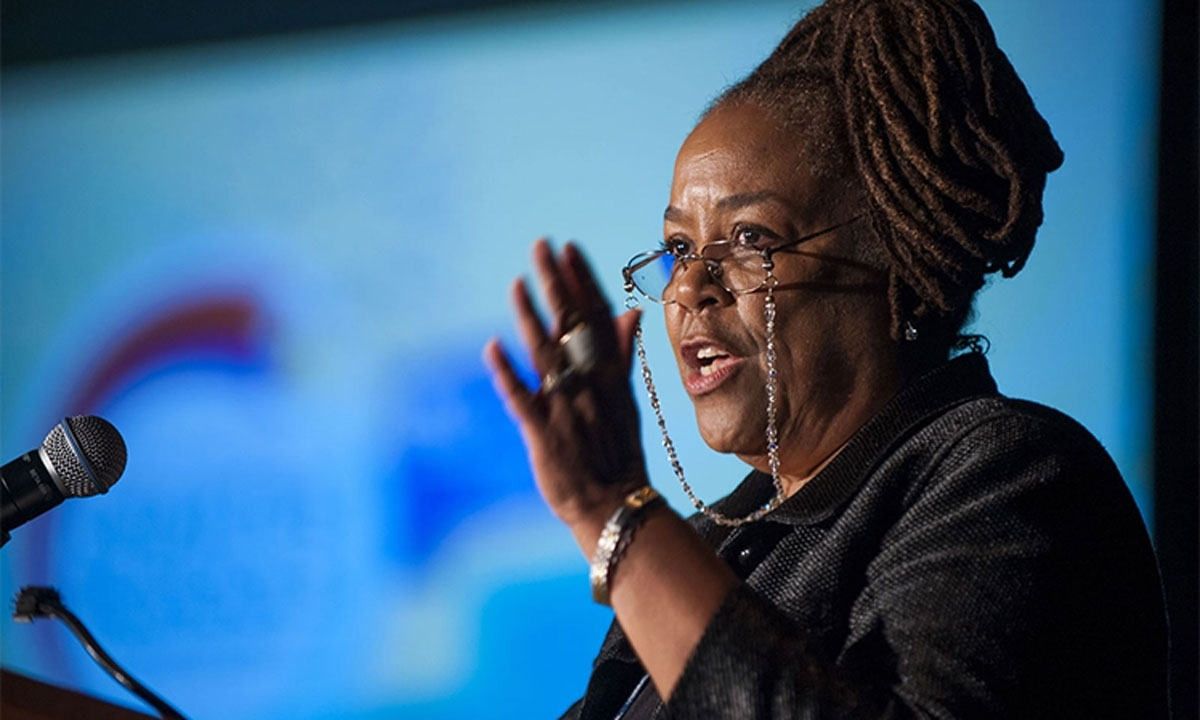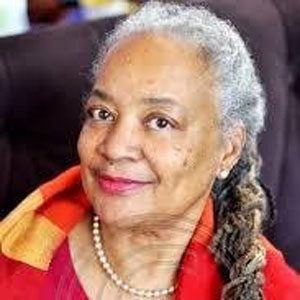Education Reform as Social Justice: The Legacy of Washington’s Ramona Edelin
A charter school founder remembers a leader, academic and activist who championed educational choice for D.C. families and students.

Get stories like this delivered straight to your inbox. Sign up for The 74 Newsletter
This month marked a formal goodbye to my dear friend and colleague, an indefatigable fighter for social justice and renowned champion of education reform, Dr. Ramona Edelin. Celebrating her life and work, many attended her memorial service in Washington.
It was in the nation’s capital that I first met Ramona. I was in the process of opening Elsie Whitlow Stokes Community Freedom Public Charter School, named for my mother, who was a teacher and is an inspiration to me. I alighted upon Ramona, with her considerable advocacy, activism and academic expertise, as well as strong leadership skills, as a potential board member.
Back then, Ramona was president and chief executive of the National Urban Coalition, a position she held from 1988 to 1998, presiding over many initiatives, including one promoting math and science education among children of color. Ramona and I were extremely concerned about the state of the District of Columbia’s public school system, especially how it failed children growing up in the city’s most underserved neighborhoods. Families with means were fleeing for suburban schools, leaving behind those parents and guardians who lacked such options.
The D.C. Council had just passed the 1995 School Reform Act, allowing charter schools — tuition-free public schools run independently of the city system — to open. In those days, public charter schools were a novel concept. While D.C. law had established equal per-student local funding for students at charter and traditional public schools, payments were often delayed — a cause of many sleepless nights for public charter school pioneers.
In the end, Ramona did not join our board. She did, however, become a powerful voice for equality in per-student funding and access for charters to surplus city school buildings, which came to be enshrined in D.C. law. These issues required Ramona’s persistence and hard work throughout this part of her career, as the District continued to divert public money outside the per-student funding formula to traditional schools. The city also continued to sell or lease school buildings that it couldn’t fill to private developers for condominiums.
In all these struggles, Ramona stood by our side, at one point even leading a lawsuit against the city with two public charter school co-defendants. She championed the cause of children whose families would otherwise have lacked choice, and worked with public charter schools as our enrollments grew.
Today, the charters educate nearly half of D.C.’s public school children and have raised student performance and graduation rates. This has prompted reform of the traditional system and given families choices that are a world away from what was available in the mid-1990s. Without the support of stalwarts such as Ramona, the charter reform would not have blossomed as fully.
Our pre-K-6 school, which started with a class of 35 children in 1998, now has over 500 on two campuses. Our bilingual immersion school has a mission of community service and teaches students to be global citizens, assisted by study tours to Martinique for those studying French and to Panama for those studying Spanish. We also have an International Baccalaureate program and are a feeder school for D.C. International Public Charter School, which specializes in French, Spanish and Mandarin immersion.
All this progress owes much to Ramona’s rock-solid support for the charter movement, a commitment that clearly traces back through the influences on her life. This began with her teacher and librarian mother, the first woman to earn a doctorate in library science from Columbia University, after graduating from Atlanta’s Fisk University, a historically black college. Ramona followed in her footsteps, graduating from Fisk as well.
Foreshadowing a lifetime of activism, Ramona was taken on her first demonstration — protesting racially discriminatory hiring practices — at age 3. She was profoundly affected by attending a segregated school and by the 1954 Brown v. Board of Education Supreme Court decision integrating the nation’s public schools. At age 17, Ramona attended the 1963 March on Washington, later recalling how she had saved up her money over the summer to take the bus from Atlanta to D.C.
After graduating with her bachelor’s degree in philosophy in 1967, Ramona moved to England with her U.S. Air Force husband and continued her education by obtaining a master’s degree in philosophy from the University of East Anglia in 1969. Returning to the States, she earned her doctorate at Boston University with a dissertation making the case that famed scholar and civil rights activist W.E.B. Du Bois should be considered a philosopher as well as an economist and historian.
Ramona took Du Bois’s activist-academic tradition into her professional life, teaching at Emerson College and establishing the nation’s first African-American studies department, at Northeastern University, in 1973. However, it was after moving to Washington, D.C. to begin a career at the National Urban Coalition that activism became the focus of her professional life. Other roles included executive director of the Congressional Black Caucus Foundation and President Bill Clinton’s appointee to the Presidential Board on Historically Black Colleges and Universities. She was CEO and president of the coalition when I met her.
It was while leading the coalition that Ramona was instrumental in coining the term “African-American” in 1988. And it was in her work as executive director of the D.C. Association of Chartered Public Schools that she helped shape the educational landscape that we know in the District today.
Ramona liked to quote Du Bois’s prescient prediction that “the problem of the 20th century is the problem of the color line,” adding, “It’s up to us to be sure that’s not the problem of the 21st century.”
Inspired by Ramona’s legacy of fighting for social justice, our school has created the Founder’s Award for Excellence and Community Service. The first of these will be awarded to Ramona posthumously at this year’s graduation ceremony.
Get stories like these delivered straight to your inbox. Sign up for The 74 Newsletter

;)
